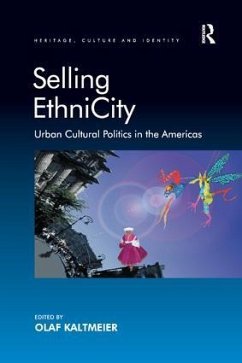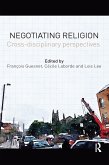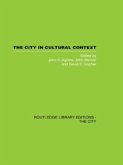Bringing together a multidisciplinary team of scholars, this book explores the importance of ethnicity and cultural economy in the post-Fordist city in the Americas. It argues that cultural, political and economic elites make use of cultural and ethnic elements in city planning and architecture in order to construct a unique image of a particular city and demonstrates how the use of ethnicized cultural production - such as urban branding based on local identities - by the economic elite raises issues of considerable concern in terms of local identities, as it deploys a practical logic of capital exchange that can overcome forms of cultural resistance and strengthen the hegemonic colonization of everyday life. At the same time, it shows how ethnic communities are able to use ethnic labelling of cultural production, ethnic economy or ethno-tourism facilities in order to change living conditions and to empower its members in ways previously impossible. Of wide ranging interest across academic disciplines, this book will be a useful contribution to Inter-American studies.
'Selling EthniCity is a very important contribution to the fledgling field of Inter-American studies. Combining experts from a wide range of disciplines the book offers new insights into the way ethnicity impacts upon urban life in the contemporary Americas. This is a must-read.' Stefan Rinke, Freie Universität Berlin, Germany 'This is an important and original collection that deconstructs urban socio-geographic categories such as gentrification, cultural heritage and ethnic identity. The editor has done an excellent job in choreographing a set of critical re-evaluations of public space, ethnic authenticity and commodification in a globalizing world aided by case studies that cut across the Americas, from the US and Canada to Mexico, Ecuador and Bolivia.' Lawrence A. Herzog, San Diego State University, USA









